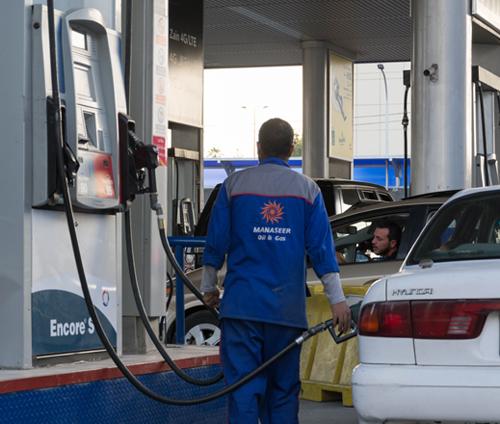You are here
‘Fixed tax value on oil derivatives immune to global price fluctuations’
By JT - Jun 23,2019 - Last updated at Jun 23,2019
AMMAN — The fixed tax that was recently accredited by the Cabinet is the penultimate phase of “liberalising the oil derivatives market”, which will be followed by setting ceilings for the prices of fuel, Energy Minister Hala Zawati said on Saturday.
In an interview with the Jordan News Agency, Petra, Zawati said that the government’s decision to set a fixed value for the tax on oil derivatives, instead of calculating a percentage of the current price, means that the tax will not change in the future with the fluctuation of global oil prices.
Under the new by-law of pricing oil derivatives, a fixed rate will be accredited through imposing a fixed value (fils per litre or dinar per tonne) for each oil derivative, the minister said.
This procedure aims, first and foremost, to “protect consumers” against effects of increased tax values if international oil prices increase, and also aims at maintaining the value of government revenues collected from levies imposed on oil derivatives.
The value of the fixed tax, according to the minister, will be JD0.370 per one litre of 90-octane gasoline, JD0.575 for each litre of 95-octane gasoline, JD0.7 for one litre of 98-octane gasoline and JD0.165 for each litre of kerosene and diesel.
Zawati estimated that revenues from taxes imposed on oil derivatives during 2019 will reach between JD1 billion and JD1.05 billion, which accords with the expectations of the 2019 budget.
The minister noted that the sales of 90-octane gasoline in 2018 amounted to 1.6 billion litres, 95-octane gasoline totalled 168 million litres, while diesel and kerosene sales reached 2 billion and 87 million litres, respectively.
As for the Risha Field’s Well 48, Zawati said that the recent discovery in the field can contribute to developing the field that once produced a total of 30 million cubic feet (mcf) of gas daily, which dropped to 9mcf, before it went up to 16mcf after the excavation of Well 48.
She also said that the National Petroleum Company has a plan to dig three wells as part of the ministry’s endeavours to explore more gas in the Risha Field and to increase the contribution of local energy resources to the total energy mix.
Related Articles
AMMAN — The government’s fuel pricing committee at the Energy Ministry on Tuesday decided to raise the prices of a number of fuel derivative
AMMAN — Energy Minister Hala Zawati on Friday said that taxes on fuel derivatives are “really high” but they are part of the Kingdom’s monet
AMMAN — The government on Friday decided to increase the prices of gasoline, kerosene and diesel, and to maintain the price of gas cylinders

















